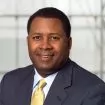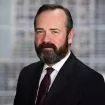A. Congress
- Treasury and the SBA disclosed the identities of a portion of PPP loan recipients. The Washington Post has created a searchable database of the recipients. Politico reports that the revelation that wealthy businesses and nonprofits benefited from PPP loans makesit more likely that Congress will impose new limits on aid in its next rescue plan for employers and workers. Rep. James E. Clyburn, Chairman of the Select Subcommittee on the Coronavirus Crisis, issued a statement in response to the disclosure. He expressed appreciation for the "much-needed transparency for the largest borrowers," but noted that "it is only a first step" and that the Select Subcommittee "is working to ensure more oversight and more transparency for this critical program."
- House Energy and Commerce Committee Chairman Frank Pallone (D-NJ) sent letters to ten companies and a trade group to request billing information for coronavirus tests after the committee received reports of bills ranging from $300 to $6,000.
- Bicameral Democratic Health Committee leaders wrote to HHS Secretary Alex Azar, Labor Secretary Eugene Scalia, and Treasury Secretary Steven Mnuchin expressing serious concerns with recent guidance issued by the Trump Administration allowing insurance plans and group health plans to deny coverage claims for COVID-19 tests and other related services.
- Senators Elizabeth Warren (D-MA) and Edward Markey (D-MA) and House Oversight and Reform Chairwoman Carolyn Maloney (D-NY) introduced a bill to put in place national data collection and reporting requirements to make sure assisted living facilities adequately protect residents from COVID-19. They also released a report showing high rates of coronavirus infection and deaths among assisted living residents.
- Senate Finance Committee Chairman Chuck Grassley (R-IA) and Senators Steve Daines (R-MT) and Martha McSally (R-AZ) introduced the Emergency Support for Nursing Homes and Elder Justice Reform Act of 2020, which will improve existing programs to protect older Americans while also providing help to nursing homes in light of the COVID-19 pandemic that has posed serious problems for these facilities.
B. Executive Agencies
- OSHA served a subpoena on the South Dakota Department of Health on June 23, seeking records related to a COVID-19 outbreak at Smithfield's Sioux Falls facility, which temporarily closed for more than three weeks after hundreds of workers tested positive for the virus. Smithfield has asked a federal court in South Dakota to quash the subpoena, arguing that its employees "have legitimate privacy interests in this information."
- Last week, DOJ Civil
Division Principal Deputy Assistant Attorney General Ethan
P. Davis spoke at the U.S. Chamber of Commerce's Institute of
Legal Reform to outline the Divisio n's enforcement priorities,
specifically including COVID-19 fraud. A full transcript of
Davis's remarks can be found here, but two highlights are below:
- The Division will "energetically use every enforcement tool available to prevent wrongdoers from exploiting the COVID-19 crisis," including the False Claims Act.
- The Division does not intend to bring False Claims Act cases against companies based on noncompliance with non-binding COVID-19 agency guidance, nor does it intend to pursue cases based on "immaterial or inadvertent technical mistakes in processing paperwork, or that simply and honestly misunderstood the rules, terms and conditions, or certification requirements"-and in fact will consider moving to dismiss qui tam suitsthat are premised on such mistakes.
C. State Attorneys General
- A coalition of six state AGs, led by California's Xavier Becerra and Michigan's Dana Nessel, filed a lawsuit against the U.S. Department of Education, alleging that the Department's interim regulations unlawfully reinterpret the CARES Act in a manner designed to divert funds away from public schools and towards private schools.
- Oregon AG Ellen Rosenblum recently reached settlements with six companies and medical practitioners who had sold products and services claiming to "cure" COVID-19 or otherwise boost an individual's immunity and keep them healthy from the disease. Many of these products and services were neither approved by the FDA, nor recommended by the CDC. The settlements require the companies and practitioners to cease making such claims unless the product or service is approved by regulators and supported by scientific evidence. Washington AG Bob Ferguson reached a similar settlement with the maker of a purported COVID-19 "vaccine."
- Pennsylvania AG Josh Shapiro briefed members of that state's congressional delegation regarding his criminal investigation of the response by certain nursing homes to the COVID-19 pandemic. A number of House members had earlier written a letter to the attorney general, asking that the investigation include a review of the state's guidance to nursing homes regarding readmission of residents who had tested positive for COVID-19; according to reports, General Shapiro promised House members his investigation will be "thorough, holistic and wide-ranging." House members from other states, including New York, have similarly asked that state AGs conducting nursing home investigations review the actions and directives of state regulators.
D. Special Inspector General for Pandemic Recovery (SIGPR)
No notable developments this week.
E. Pandemic Recovery Accountability Committee (PRAC)
- The Treasury Department wrote a letter to Rep. Carolyn Maloney (D-NY), chairwoman of the House Oversight and Reform Committee, affirming that the CARES Act is "clear" that PRAC can oversee all CARES Act spending. Treasury's legal counsel had previously determined that PRAC only had authority over certain sections of spending in the CARES Act. Rep. Maloney issued a statement calling Treasury's reversal a "significant victory for oversight and accountability."
The content of this article is intended to provide a general guide to the subject matter. Specialist advice should be sought about your specific circumstances.








